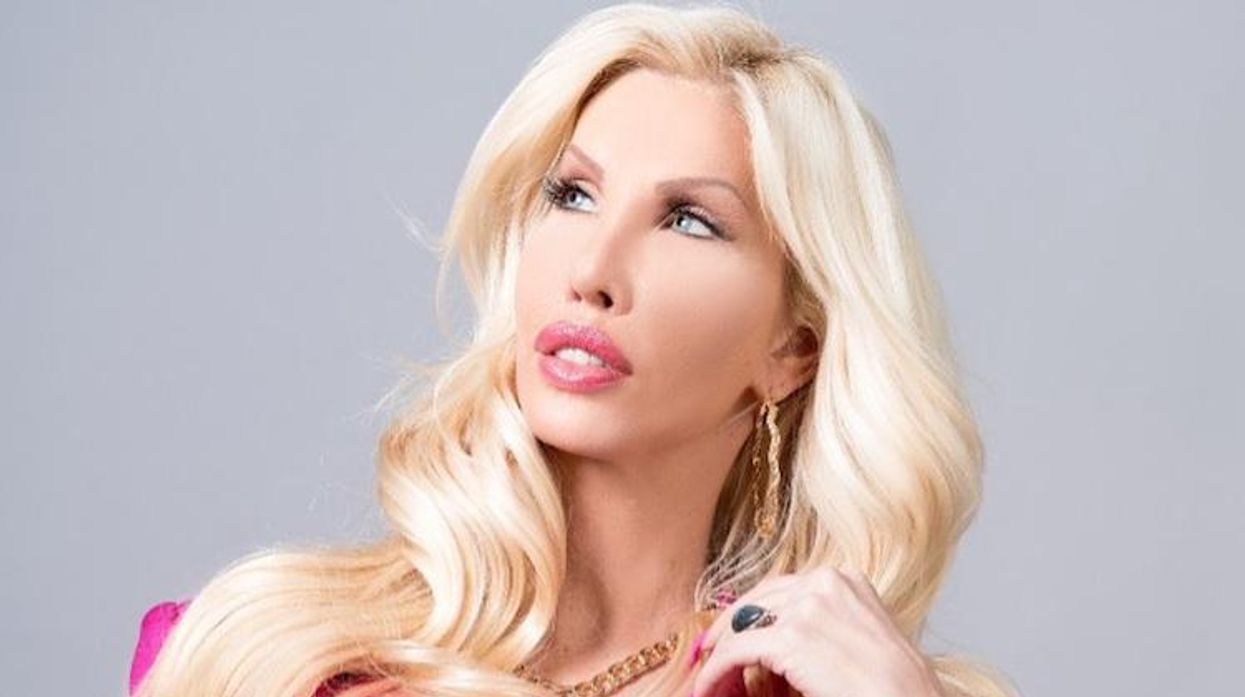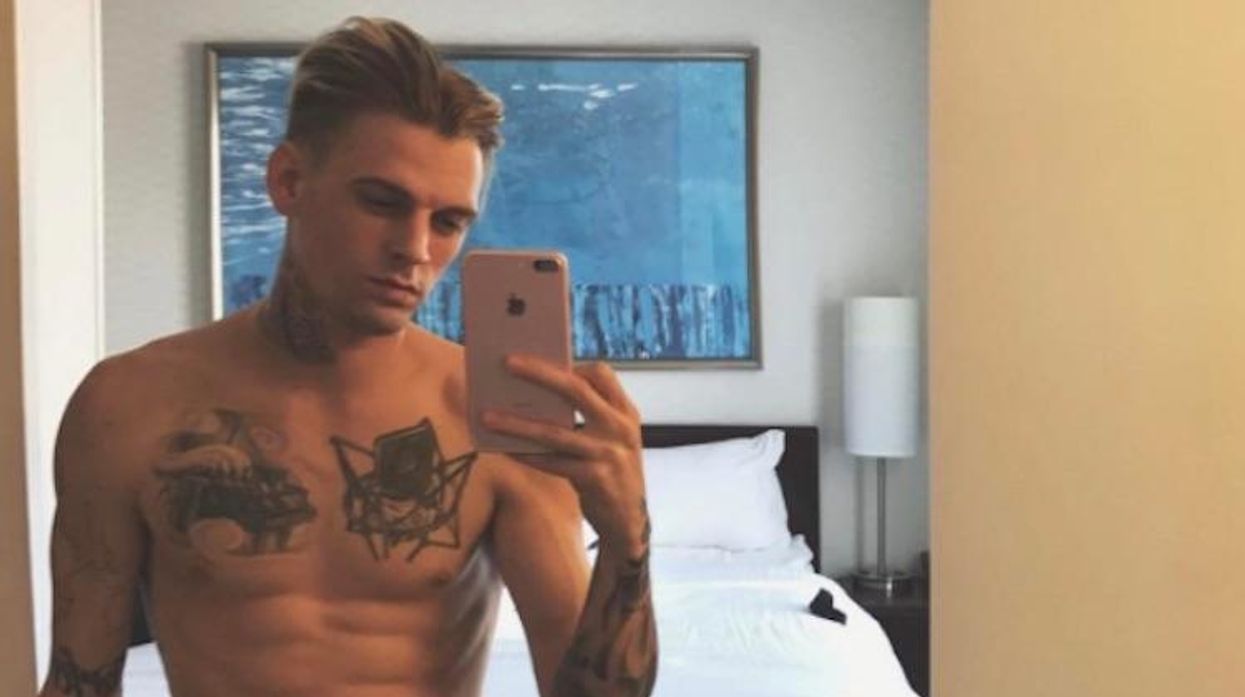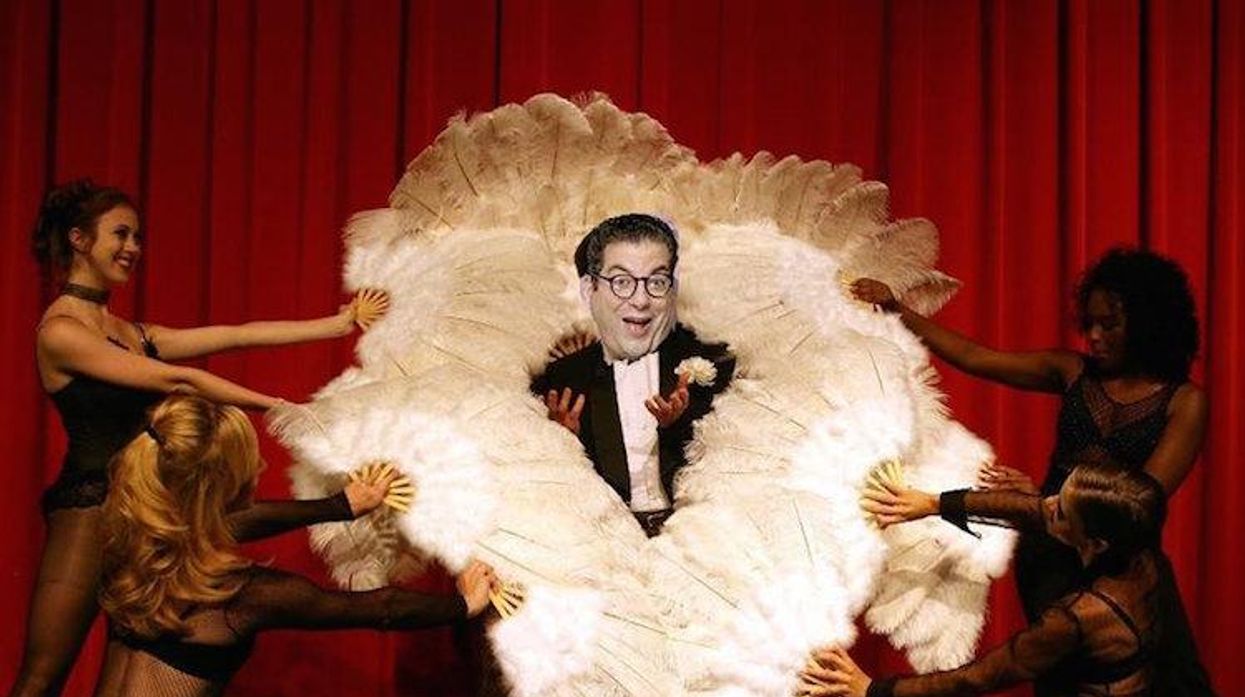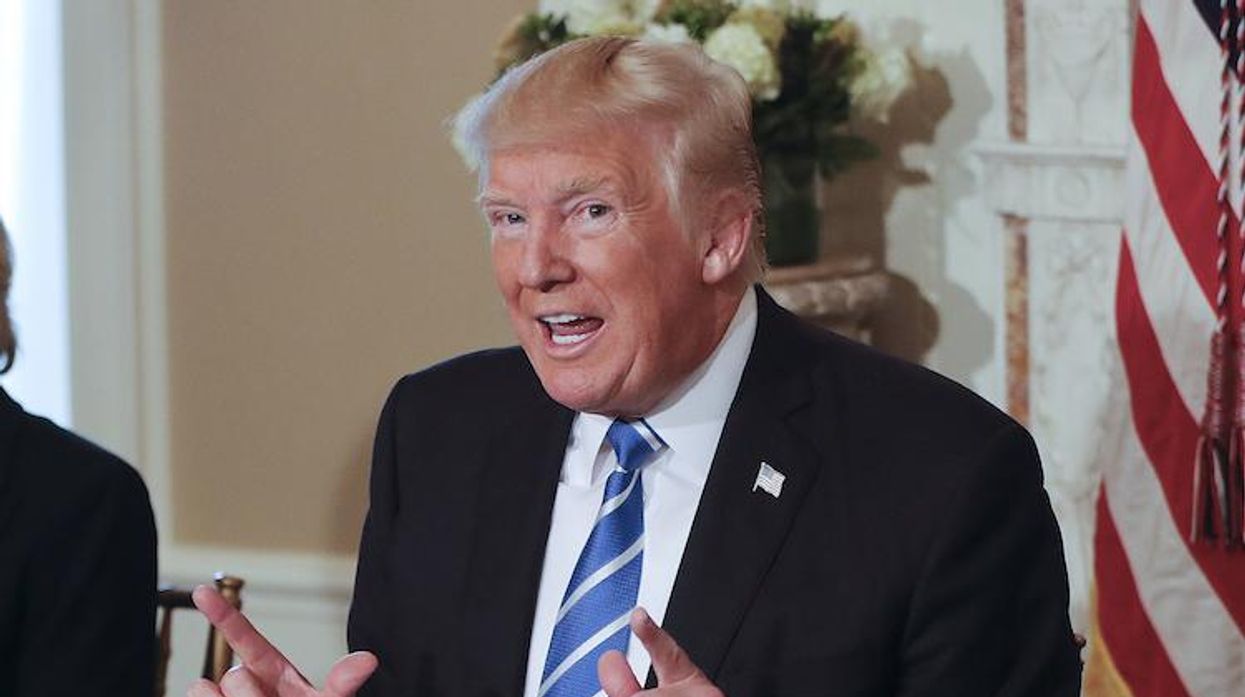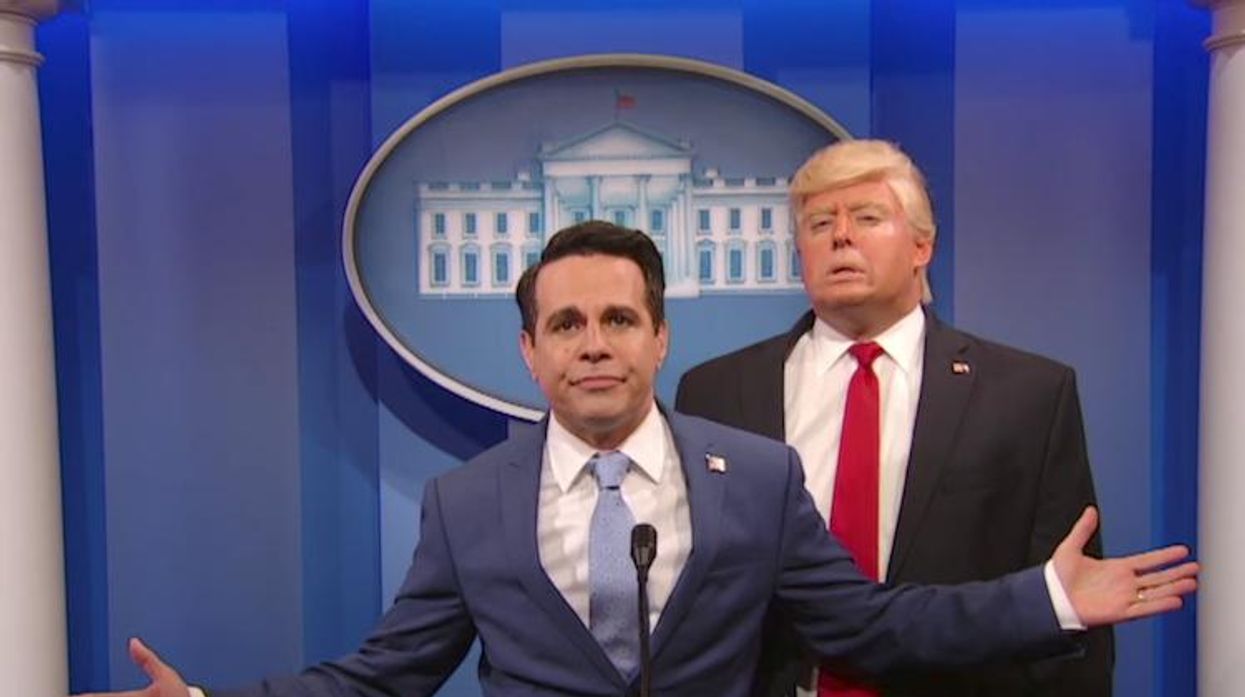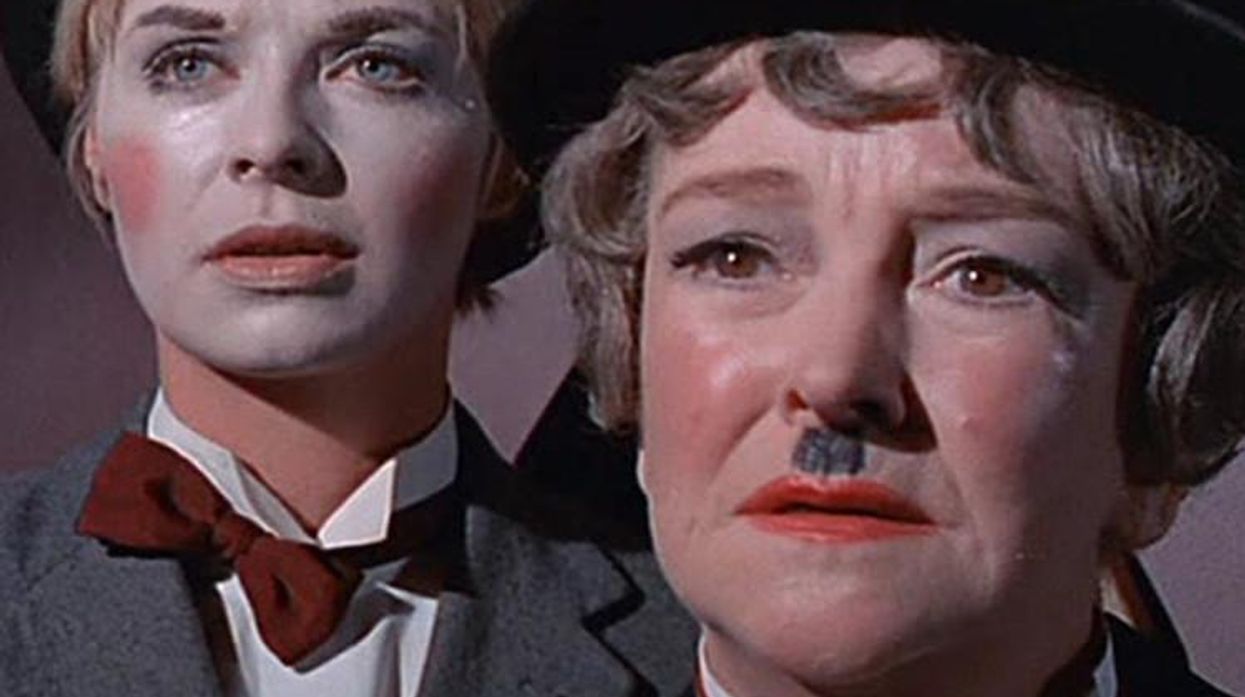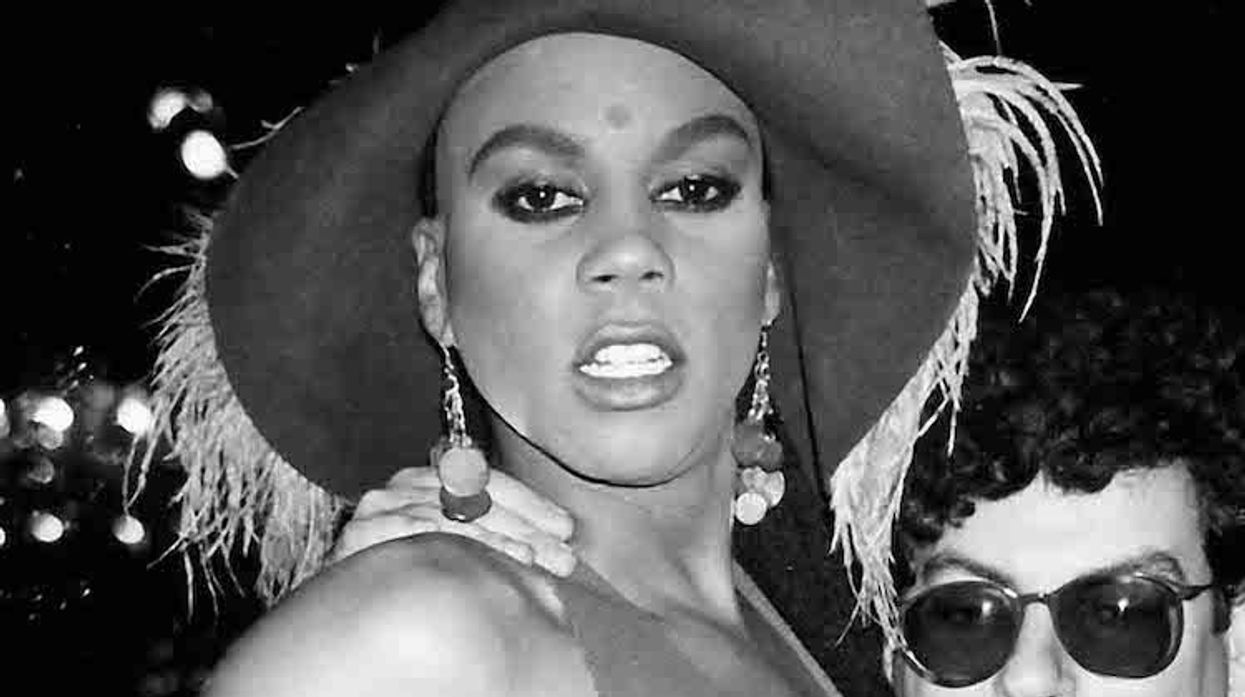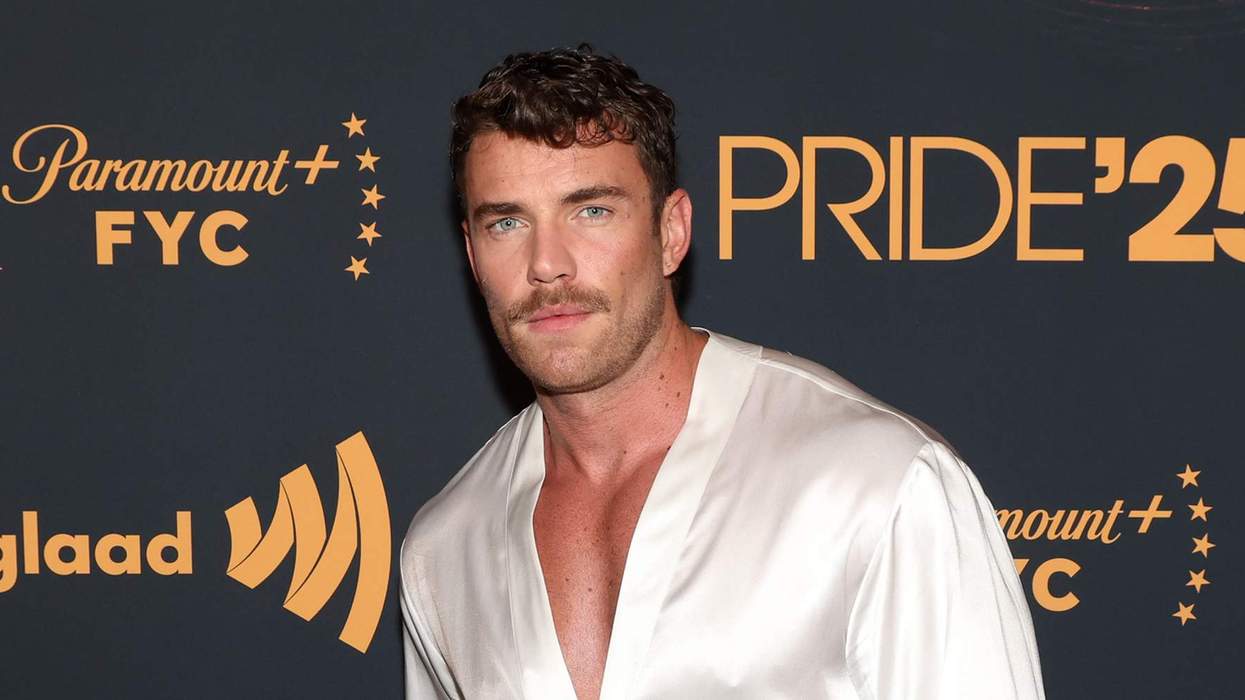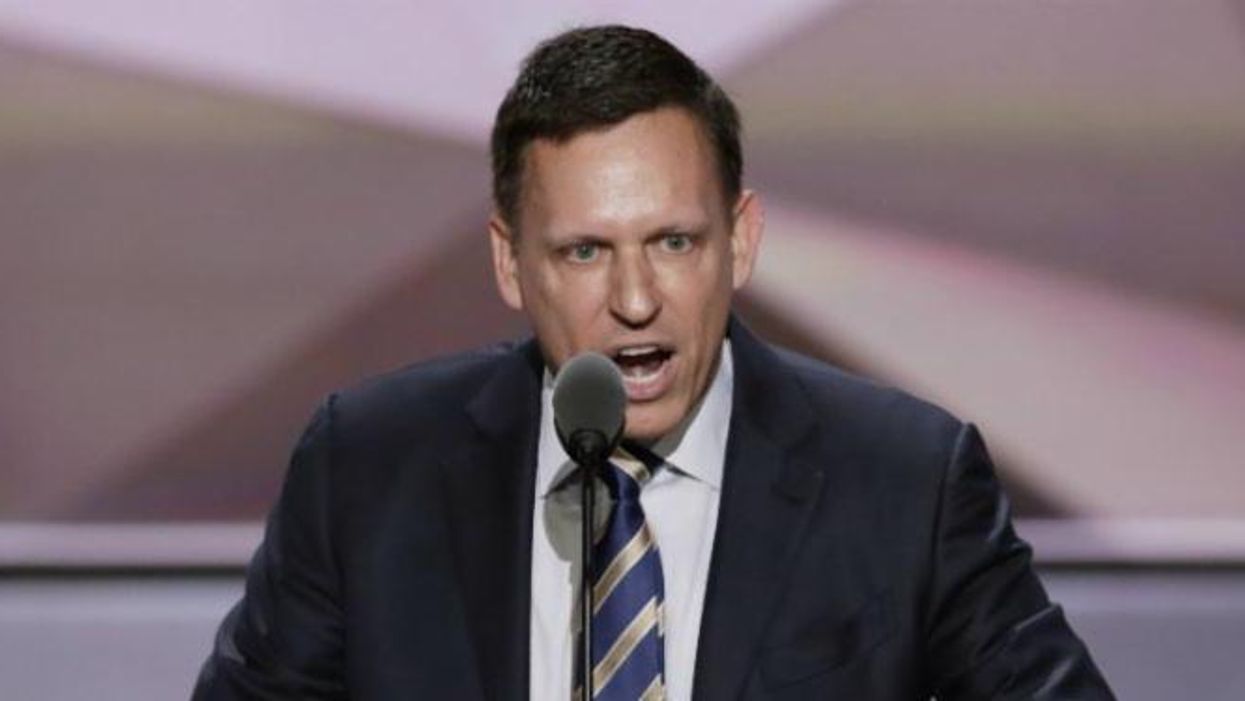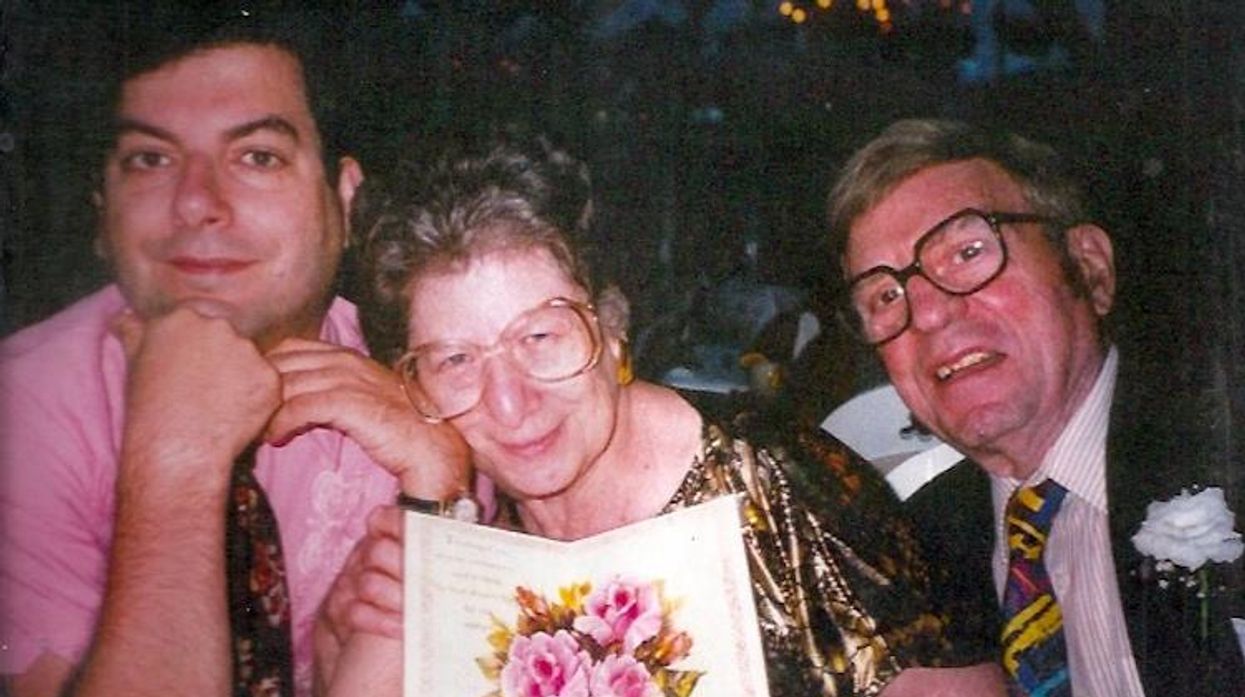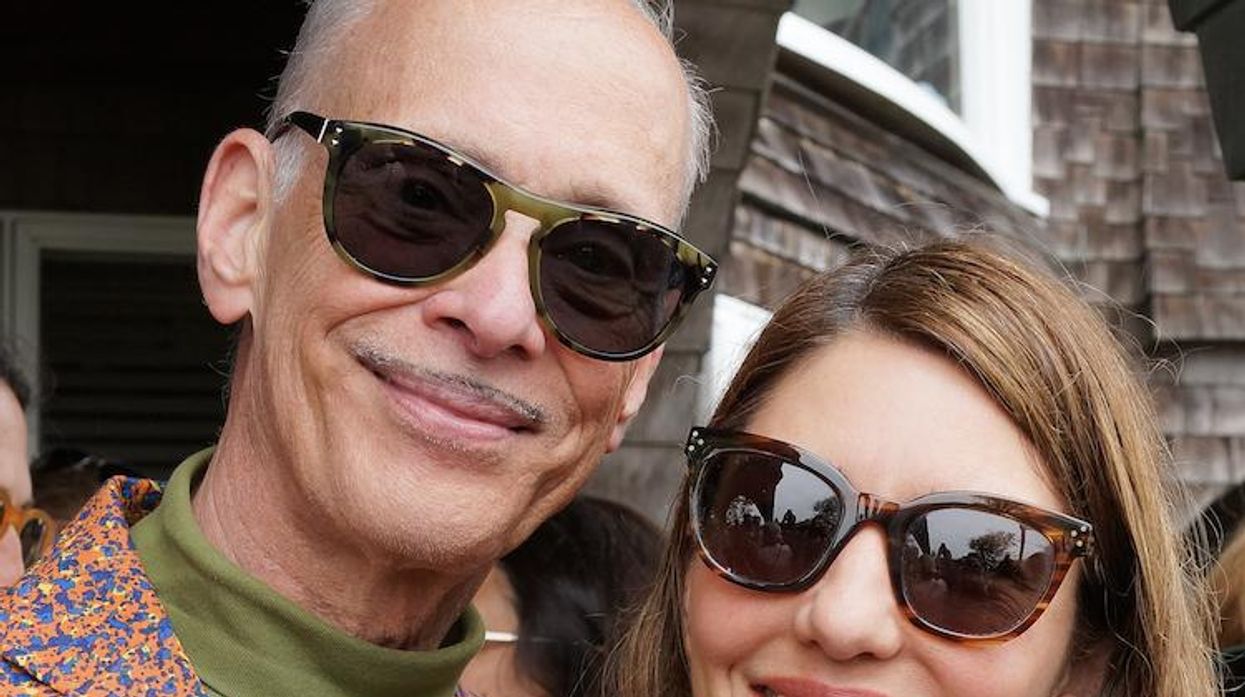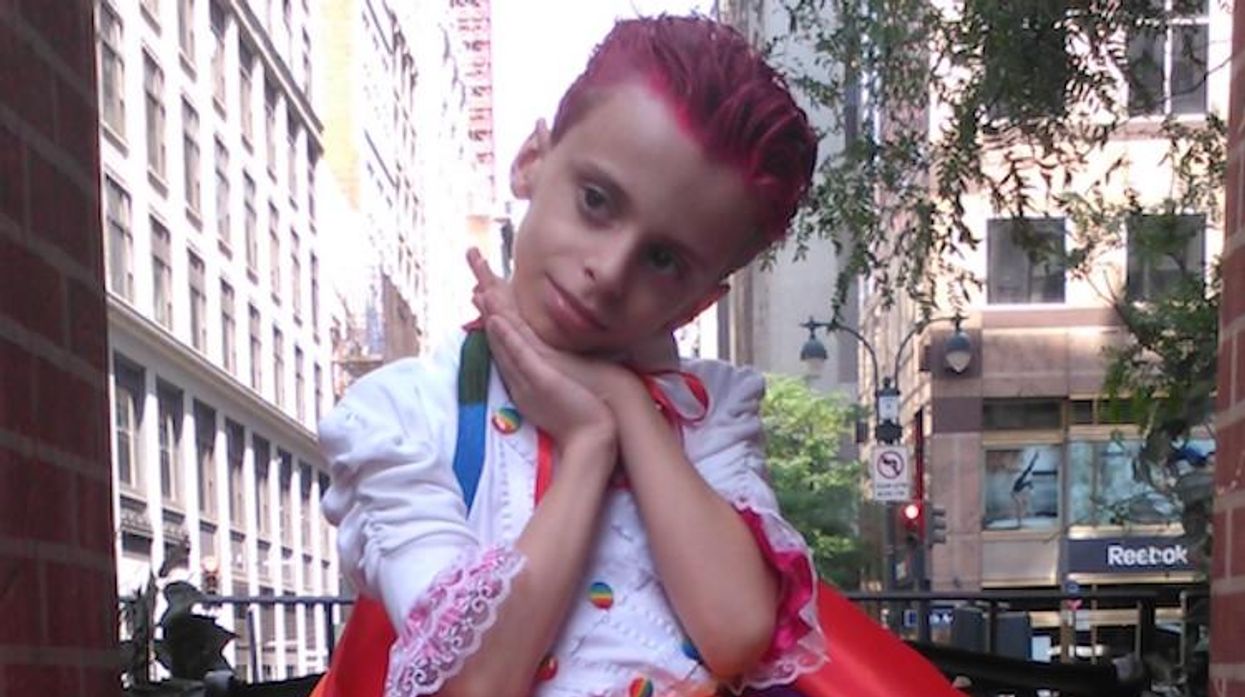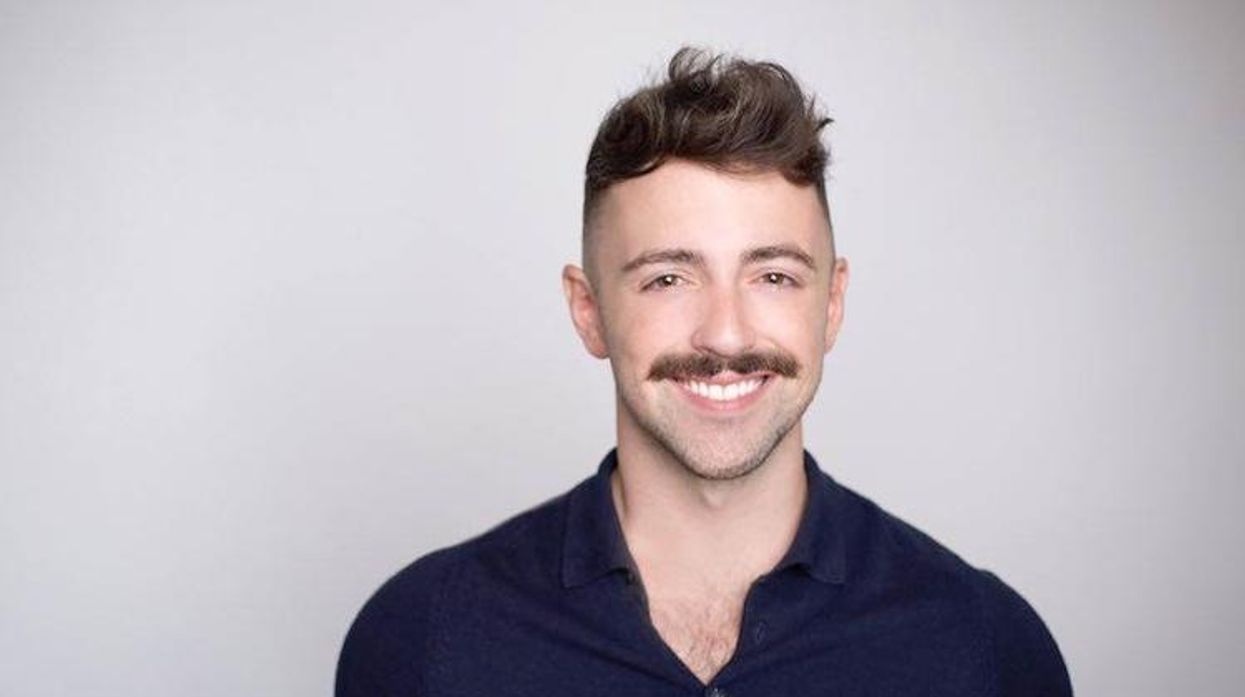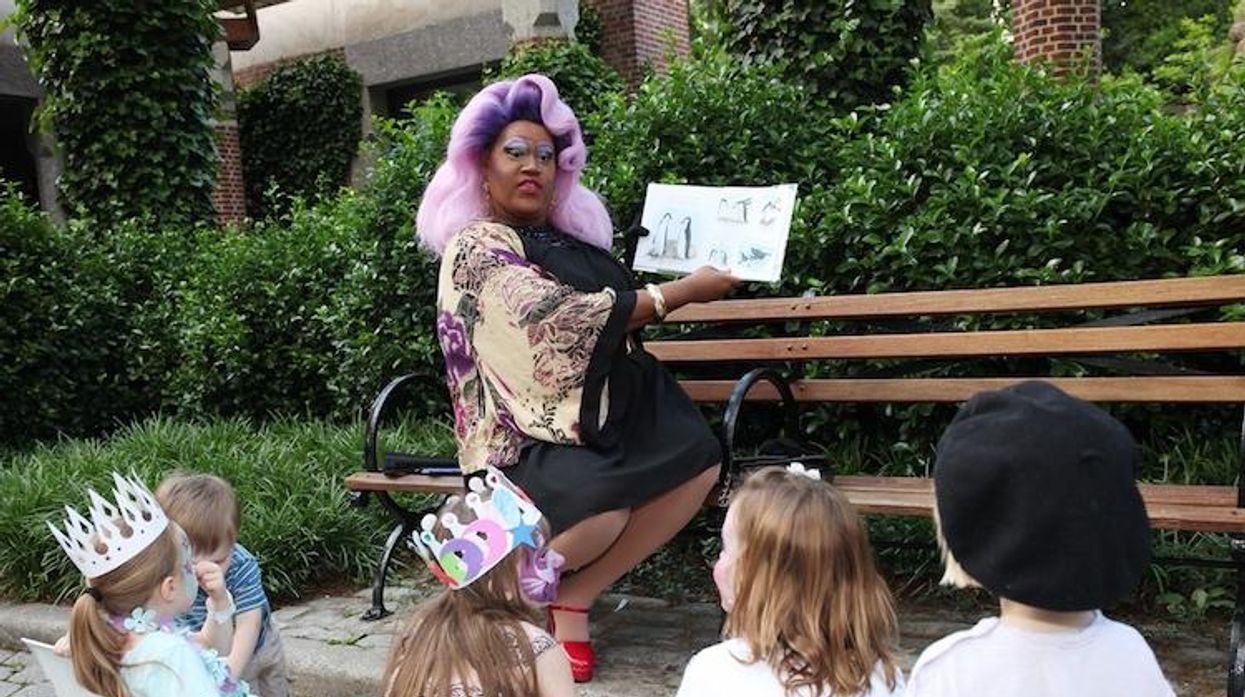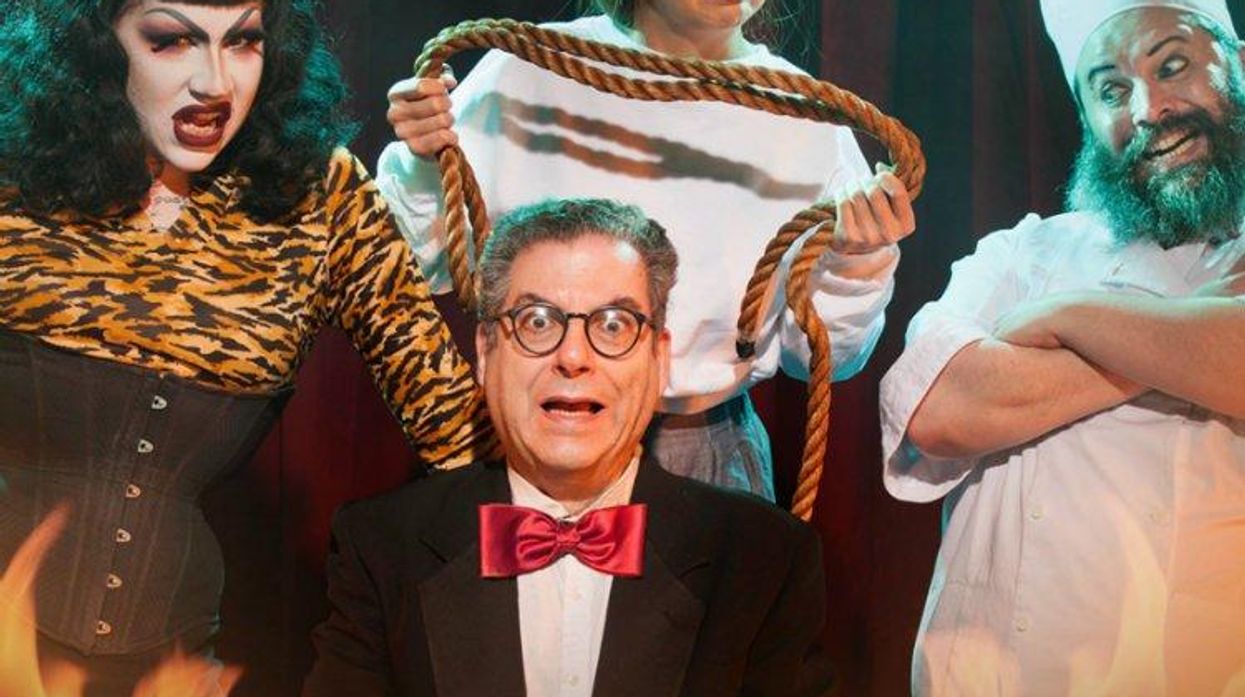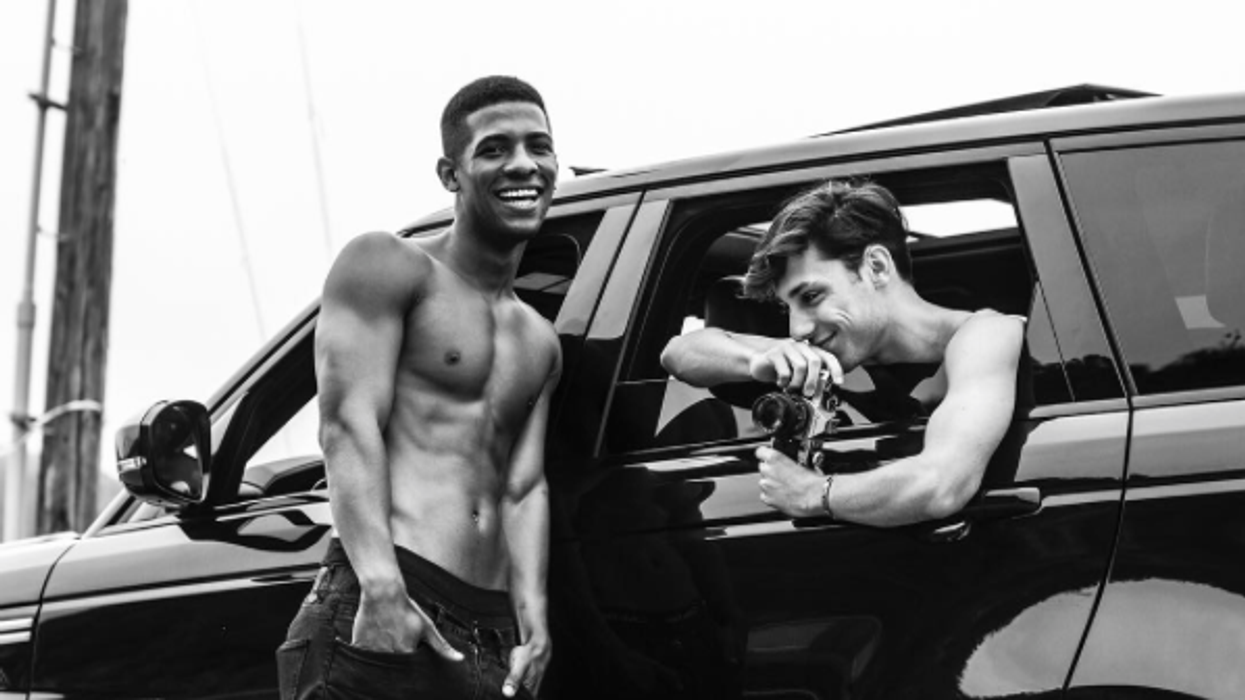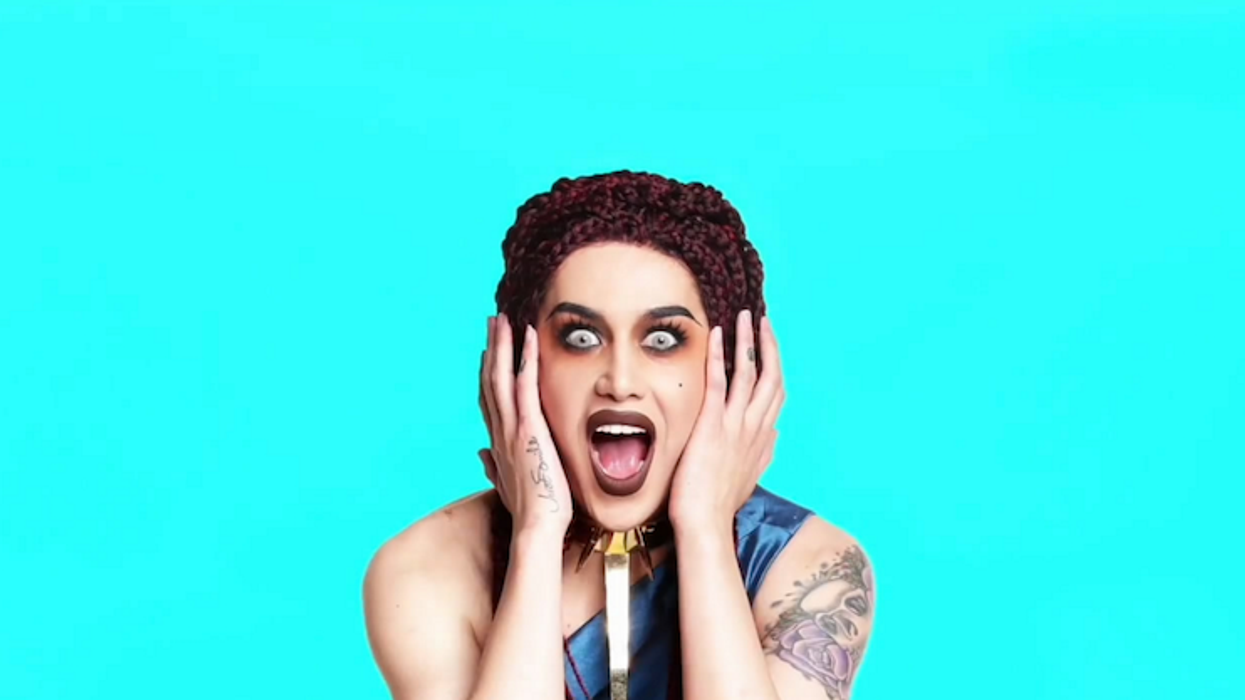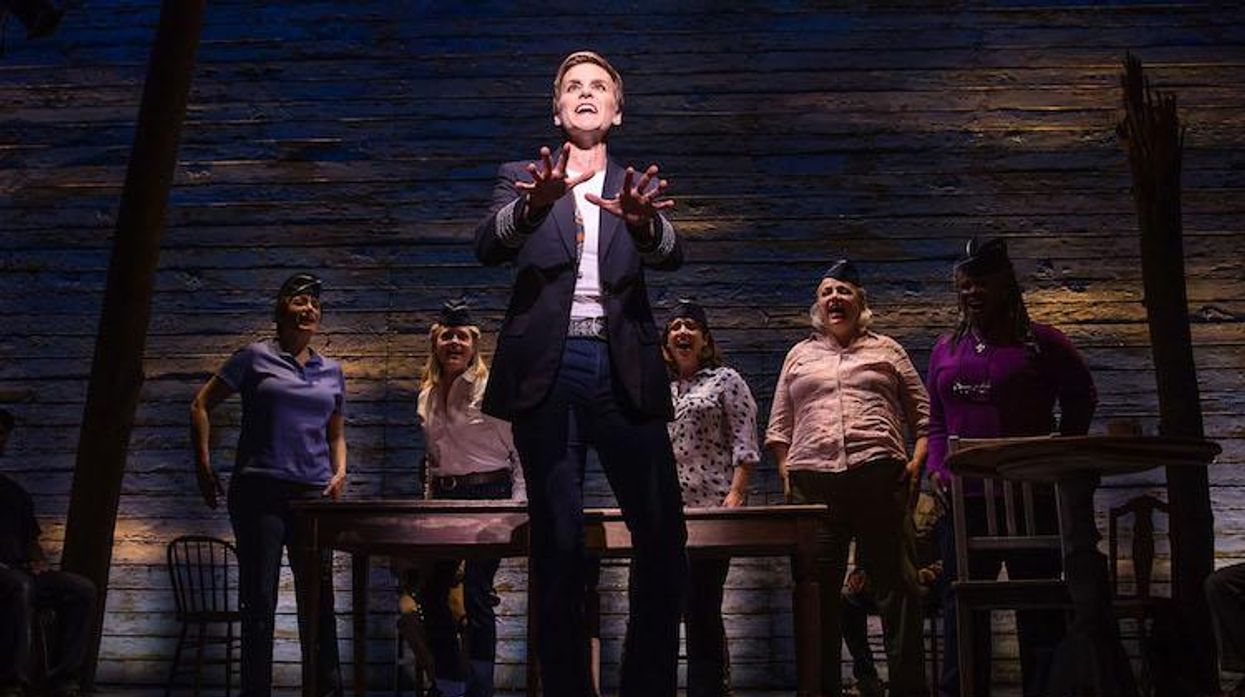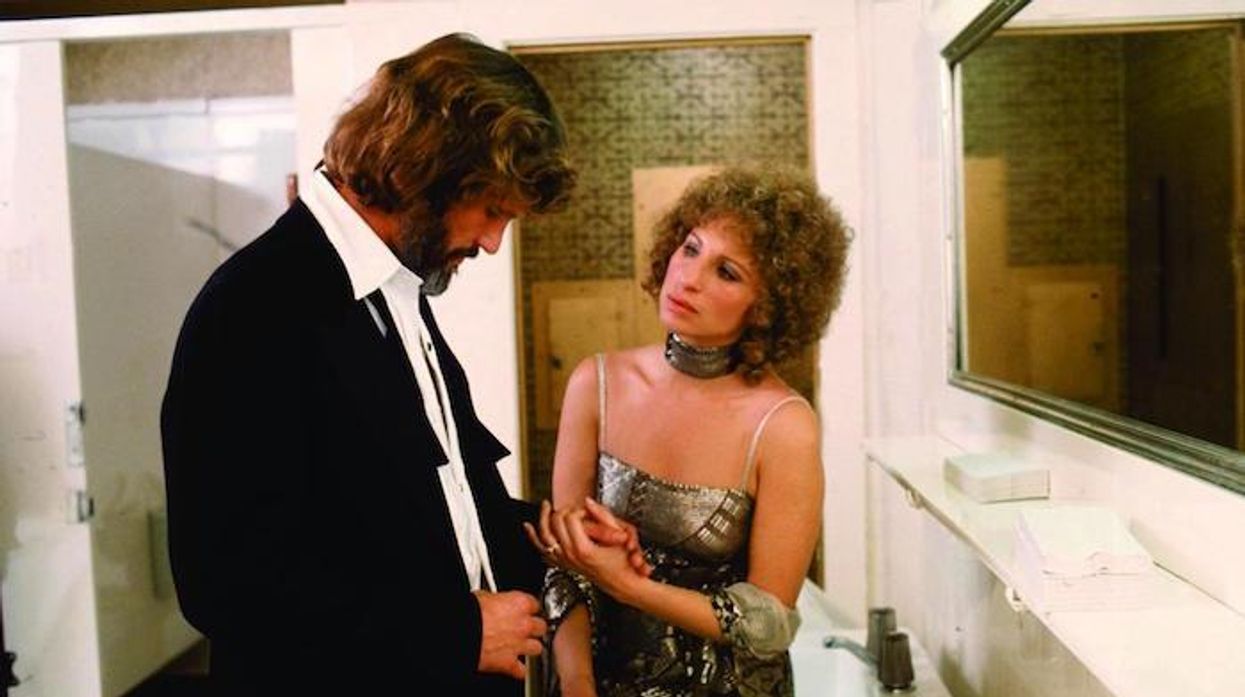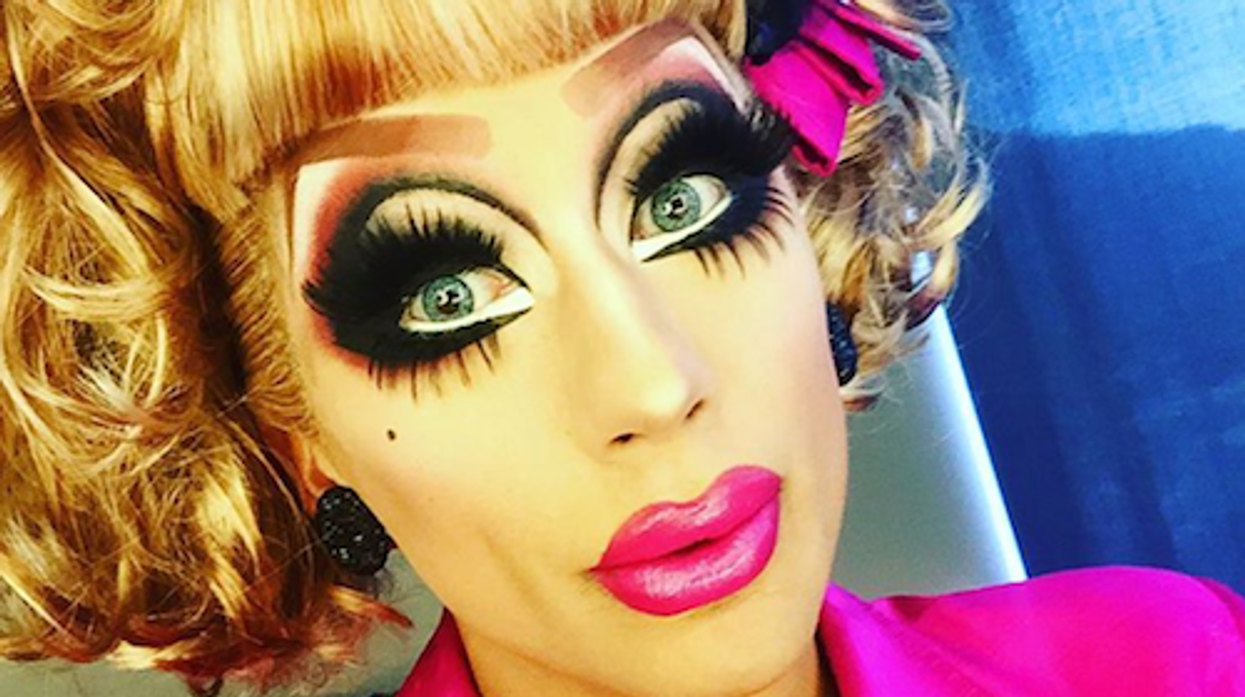The New-Jersey-born pop singer Nikki Exotika is a glam trans woman who's made strides in introducing uniqueness and sass to the dance-music market. I just talked to Nikki about her interesting career evolution, as well as the romantic challenges she's faced since having gender reassignment surgery. What she says might not seem politically correct to folks who want the world to be all black-and-white, but sorry, she happens to be telling the truth about her experience.
Hello, Nikki. What music did you love when you were coming of age?
My first record was Madonna. She was everything I wanted to be. My next album was Lisa Lisa and Cult Jam, and my last one was RuPaul. Those were my three favorite artists growing up.
When did you transition?
After I graduated high school. I was cross-dressing and dressing up after school. I was always experimenting, putting on makeup and nail polish in the bathroom since the age of four, and playing with dolls.
Did you have a supportive family?
Not at first. When I grew up on the Jersey shore, my mom wasn't understanding of my transition. She didn't want to talk about it. But I knew I was meant to be who I am today. My stepfather raised me. I never met my dad until the day he passed away when I was 14 or 15. My mom left him when I was young. He was in the marines and got addicted to drugs. She gave him an ultimatum: "I'll take my son if you don't clean up your act." He didn't stop.
Once you were grown and on the scene, did you immerse yourself in nightlife? I certainly saw you around.
I did. When I graduated high school, I'd go out a lot in New York City to find myself. I knew there was a diverse group of people there. That's when I met Amanda Lepore, Desire and Astro Erle. They took me in under their wing. For a minute, I was a club kid. Then I became a dancer--I was always in dance classes and loved to dance. In school, I was always the number one dancer. I'd get into the center of the circle and have a huge crowd around me. I started to go to the straight clubs too and danced in front of the boxes. That's when I got hired to be a dancer at the Roxy [in the '90s] and all the big clubs in the city. I put in the work and met the right people. There was a star that needed to shine. I wanted to put dancing to the next level.
And when did you start putting out music?
In 2011, my first record was "Manwhore." My next release was "Electric Touch."
And were you welcomed?
In the LGBT community, you'd like to say it's supportive, but it's really not sometimes. People in the trans community are very cutthroat. Girls like to put people down. It's rare you find someone to support you. So I kept on doing it to see what the reaction would be. I got a great response. People liked it and bought it.
Did you eventually get more support from trans people?
I did. Girls, people started taking me seriously, I guess. At first, they thought, "She's gonna put out some shitty club music--one-hit wonders." But when I wrote "Secret Girl," it was about being who you want to be. Accepting who you are and being trans and telling the person, whether it's your family or loved ones, that you are what you are.
What's the most challenging thing about being trans?
Being judged. It's a battle. It's a lot of hurdles. It's harder for trans. We're in a state that gays and lesbians are accepted, but trans are just getting the door opened, and even in certain markets, the doors are closed. There's only a select number of trans that get through the door. It's not, "Come on through. Everybody's welcome." Only Laverne Cox and Gigi Gorgeous and anyone who has a fan base is able to get through. It's really hard. The door is only cracked open, and I want to kick that door open.
Are you happy romantically?
I've tried. I've dated. I've been in love three times. But it's hard. I had my sex reassignment surgery in 1997, and I thought my life would change drastically. It got better, but my love life dissipated. When I had a penis, before my operation, men were attracted to me because of that. When you hear "trans," you want a girl with a penis, not a girl with a vagina. Now that I have a vagina, they don't want me. They're like, "Why do I want to be with you with a fake vagina when I can be with a woman who gives me babies?" Eventually--or while they're with me, when they cheat on me--they go with a girl with a penis. Later, after I'm successful and get to that level where I'm content to be where I am, I can melt the block of ice. I feel like Maleficent. My wings were cut so many times.
I had no idea it was like that out there.
I've tried so hard to find a man who likes me inside--my talent, my look, everything about that. It's not like that. I tell girls, "He wants you because you have a penis." At the end of the day, it sucks, but that's the harsh reality.
So would you tell a young trans woman to not have that surgery?
No, because you have to do what makes you happy. I don't regret anything I've done in my life. I did it to complete myself and the way I look in the mirror naked. I know there's someone out there for me. Actually, I just did a TV dating show for A&E where there's a bombshell shocker when I tell the guy I'm trans.
Great! No more secrets, girl.
SOCK IT TO ME
LGBTQ personalities were way more cautious back in the late '60s and early '70s, though they still managed to make a gay splash within the limits of the day. At that time, Alan Sues was an inspiration to me for being a flamboyantly funny and campily queeny comic on the hit sketch comedy show Rowan and Martin's Laugh-In. No, the word "gay" wasn't spoken, nor was it with equally flaming comics like Paul Lynde and Charles Nelson Reilly, but Sues screamed it with every pore and I brilliantly figured it out, especially when he played a cowboy who swaggered into a bar in the Old West and ordered a frozen daiquiri. Well, I now learn from a book--Alan Sues, A Funny Man by Michael Gregg Michaud--that Sues felt besieged by the producers' insistence that he gay everything up, but at the time, for a role-model-seeking homosexual like myself, he was like a pot of sparkling water in a wasteland. Sues simply seemed at peace with being gay, and that was so major at that time, it was revolutionary. Alas, the book also informs that Sues didn't have an easy path to stardom. Being gay when it was taboo helped contribute to his drinking, eating, and self esteem issues, and by the way he also was married to a woman, but had casual, ungratifying encounters with males for a lot of the time. The actor/funny man--who died in 2011--also had to contend with the jokes aimed at his characters becoming increasingly homophobic, as well as the fact that in the media, he was forced to pretend to be straight and swinging. But the price he paid ended up being cash in the pocket of emerging queers like myself; Alan Sues was a riot, and extremely important.


